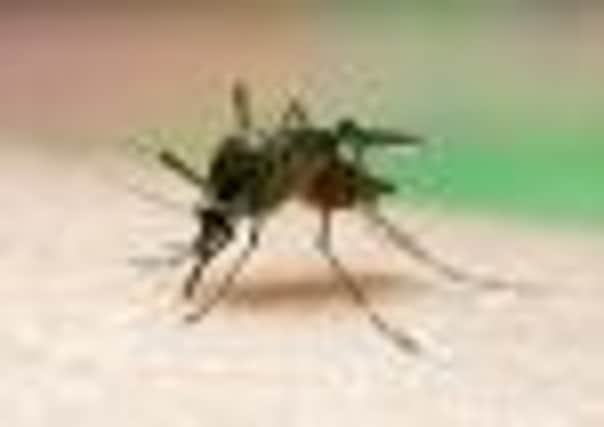Beware of the bite that can lead to a fatal disease


When Cheryl Cole collapsed and was rushed into hospital a year ago, she thought she was coming down with flu. The reality, however, was much more serious – the former X Factor judge and singer had deadly malaria.
Like many people, Cheryl may not have known the symptoms of the mosquito-borne disease, which struck after a holiday in Tanzania. Indeed, a recent survey by the Malaria Awareness Campaign showed that 57 per cent of people questioned were unaware of the symptoms.
Advertisement
Hide AdAdvertisement
Hide AdBut it’s vital that holidaymakers currently preparing to jet off to exotic climes learn to recognise the killer disease early, as prompt diagnosis and treatment can often prevent complications and rapid death.
According to the Health Protection Agency, more Britons than ever are contracting the disease, with 1,761 cases of malaria reported in the UK in 2010 – up 30 per cent in the past two years.
Cheryl is reported to have taken anti-malaria tablets before her holiday, but would appear to be one of the unlucky five per cent of people for whom the pills don’t work.
George Clooney also contracted the disease in Sudan, north-east Africa, earlier this year. It was the 50-year-old actor’s second bout of the illness and after recovering, he said his experience shows how the right medication can turn “the most lethal condition” into “a bad 10 days instead of a death sentence”.
Advertisement
Hide AdAdvertisement
Hide AdThe disease is caused by a tiny parasite injected into the blood by anopheles mosquitoes. Possible symptoms include fever, headache, shivering, feeling unwell, diarrhoea, and jaundice. They can strike from just over a week after the infected mosquito bite, to around a year later, depending on the type of malaria.
Dr George Kassianos, a spokesperson for the Malaria Awareness Campaign, says: “Symptoms can be almost identical to those of common flu and can be non-specific, making it difficult for healthcare professionals to diagnose early and accurately.
“But if flu-like symptoms are coupled with history of travel to a malarious destination in the last 12 months, or sometimes even longer, it’s essential that this infectious disease is ruled out.”
There are four types of malaria, but the most dangerous is plasmodium falciparum – the type Cole had – which can cause rapid deterioration, sometimes with reduced blood flow through tiny vessels in the brain, known as cerebral malaria.
Advertisement
Hide AdAdvertisement
Hide AdPlasmodium vivax causes milder symptoms, which often don’t appear until weeks or up to a year after a holidaymaker returns home.
Both that and the other two less common forms of malaria are rarely fatal.
Professor Larry Goodyer is head of the Leicester School of Pharmacy at De Montfort University, and sits on the executive committee of the British Travel Health Association.
He points out that people who live in malarial countries develop a semi-immunity to the disease, which travellers to the areas don’t have. A large proportion of reported cases are found in people who used to live in malarial zones, like Africa, and have settled in the UK. They lose their semi-resistance and then go home to visit without taking precautions.
Advertisement
Hide AdAdvertisement
Hide AdBesides malaria, there are several other insect-borne diseases that can be caught abroad, including yellow fever, dengue fever and Japanese encephalitis.
“Malaria and dengue fever are the two major tropical diseases,” says Prof Goodyer. “And then there’s a whole raft of other insect-borne diseases which are rarer, like sleeping sickness.”
There’s no vaccine for dengue fever and, as with malaria, the best precaution is to avoid getting bitten in the first place.
For more advice on health travel abroad, visit www.fitfortravel.nhs.uk and www.malariahotspots.co.uk
HOW TO PROTECT YOURSELF
Advertisement
Hide AdAdvertisement
Hide Ad* Travellers need to protect themselves with insect repellent, and keep as much skin as possible covered at times when mosquitoes are most likely to bite.
* The most common time for mosquitoes to bite if dusk and night time in malarial areas, and in cooler parts of the day for mosquitoes in dengue fever danger spots.
* Insect repellents containing 50 per cent Deet are recommended for all exposed skin.
* People should also check they’re up to date with tetanus, polio and diphtheria vaccinations.